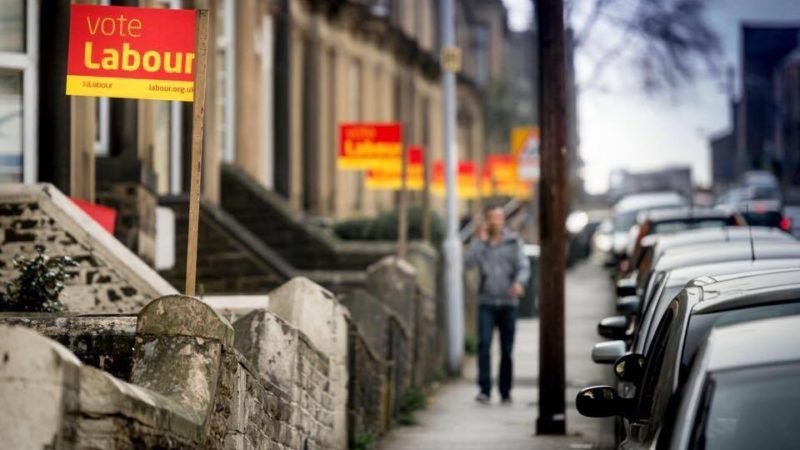
As the Labour Party begins its search for a way to win back former supporters who voted Conservative, an anecdote from the late Frank Dobson comes to mind. Frank regularly told the story of campaigning with St Pancras MP Lena Jaeger in the 1960s. Knocking on the door of a council flat, Lena Jaeger asked the resident if she supported Labour’s proposals for nuclear disarmament.
“Can you get rid of the smell of piss in the lifts?” was the quick reply. “That’s a matter for the council, not the MP,” was Lena Jaeger’s response, to which the resident replied: “Well if you can’t stop people pissing in the lift, how are you going to ban the bomb?”
And that question is as relevant today as it was back in the 1960s. If we can’t sort out the small, everyday concerns, what chance have we got of successfully tackling the big issues? Labour needs to get back to basics and win back trust based on a track record of campaigning and competence on the issues of everyday importance.
For the next five years, Labour’s power base will be town halls up and down the country. No matter who is our new leader, those exercising real power will be Labour councils and mayors.
For the past ten years, Labour councils have been rebuilding their local economies, helping to create new jobs, improving skills training and supporting small businesses. In the words of New York’s former Mayor, Michael Bloomberg: “Local elected officials are responsible for doing, not debating. For innovating, not arguing. For pragmatism, not partisanship.”
Everyone wants a better future for themselves, their family, their work and their local area. The words ‘aspiration’ and ‘ambition’ must be at the centre of Labour’s agenda for individuals, families, businesses, communities and our country.
Labour’s appeal must include those middle England families in work, who own their own home, are saving for a new kitchen or the family holiday and who want to reduce their credit card bills. And aspiration and ambition are not just the preserve of the haves; the struggling single parent, too, wants their child to get on and take the opportunities offered by our schools and universities.
Locally, we should support people with new business ideas – the enthusiasm to have a go and take risks. We need the best scientists, designers and technicians graduating from our world class universities. And we also need the skilled bricklayers, plasterers, plumbers and electricians.
We need new investment in infrastructure right across the UK, so that we can deliver goods on time and get people to work and home again in comfort. So, where do we start?
First, the role of Labour councillors, Labour councils and mayors is the bedrock on which a recovery can be built. We cannot wait for the next election. We need to start now. Labour councillors are in power now. Labour councils are delivering real change on housing, jobs, community safety, the environment, transport and social care.
Over 7,000 Labour councillors across the country are diligently taking up local issues and getting results for people on individual casework and community campaigns. In short, they are demonstrating Labour competence. We rebuild trust from the grassroots upwards. This must be the way Labour campaigns in every town, city, village across the UK.
Transforming society will take a Labour government. But seeing is believing, and Labour councils and councillors can show how we are making a start by building new homes, creating new jobs, cleaning up the environment, keeping the streets clean, filling potholes and, of course, cleaning the lifts.
Labour needs to put local successes at the heart of the strategy to win because they:
- show that Labour is about winning practical improvements for the people we represent.
- demonstrate that Labour is in tune with local priorities and is speaking up for local people.
- show that Labour understands differing local needs from across the UK and does not have a centralised, ‘one size fits all’ approach to government.
Labour councils have the hands-on experience of modernising government. As Jim McMahon MP, former leader of Oldham Council said: “Local government has moved at a rate of knots in a way that has left other government departments in the dust.”
Second, all politics is local. Local communities must make the decisions about how to grow their local economies and invest in homes, schools, health and other public services.
Labour can give the civic leadership necessary in the ‘left-behind towns’ by leading the debate about the future. That means engaging with and working with the broadest possible collection of local community and economic interests.
What is right for Workington, will not be the answer in Wolverhampton. Every town needs to find its own destiny. Our future lies in leading the local debate and search for answers.
We need to involve party members and trade union branches – but we cannot do this on our own. We need to speak to residents’ groups, community organisations, faith groups, business interests, professional bodies, academics, cultural and arts groups and people of all ages and socio-economic background.
We want all the bright young people with ideas and ambition to see opportunities in their hometown to develop their future. We need to produce plans that communities can sign up to and say: “This is our plan, and it is the way forward for our town.”
This is a big job, and we need to start now with a new style of politics, attracting new people to our cause and broadening our appeal.
We can win the next general election. We need to rebuild trust, encourage individual and community ambition and demonstrate competence. And Labour local government can lead the way. It is time to campaign local to win national.




More from LabourList
‘Energy efficiency changes must work for older private renters’
‘Labour’s creative destruction dilemma’
Economic stability for an uncertain world: Spring Statement 2026